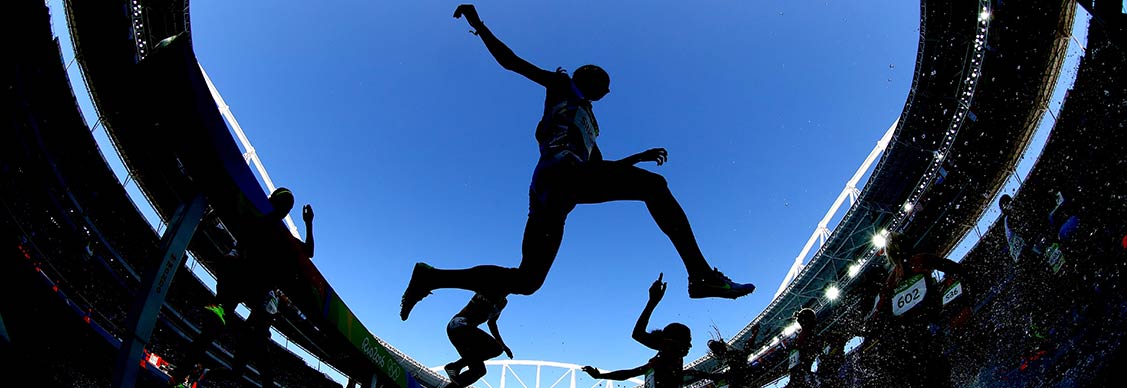How the next decade’s Olympic Games will break with the past
A new approach focuses on making the games less expensive, more sustainable
Over the next decade, the Olympics will be trimming down and going green.
Paris, Los Angeles and Brisbane – hosts of the next three Olympic Games after Tokyo – have all put sustainability atop their agendas and will commit much smaller budgets than other host cities in the past 25 years.
Brisbane, recently announced as host for the 2032 Olympics, has an estimated budget of A$4.5 billion (US$3.4 billion). Paris, taking the baton from Tokyo in 2024, is spending US$8.7 billion, while the budget for 2028 in Los Angeles is $6.9 billion.
All three undercut the approximately US$10 billion average spent since the 1996 games in Atlanta, according to JLL.
These leaner games were devised by the IOC off the back of its Olympic Agenda 2020 plan and dwindling number of bidding host cities. It requires the use of existing and temporary infrastructure, which contributes to a more environmentally friendly approach. Paris, for example, is aiming to reduce carbon emissions by 50 percent compared to previous events. Hosting events in existing facilities, even beyond the city itself, will be key.
“This new philosophy from the IOC that focuses on less wastefulness and a more rigorous legacy of sustainability reflects a shift in how peoples’ priorities have changed in the world, accelerated in no small part by the global pandemic,” says Mark Stockwell, a Queensland-based Australian Olympian, property developer and member of multiple Olympic committees.
Reduce and reuse
A big part of cutting cost and going green is using what already exists.
Los Angles, which hosted the only profitable Games in recent Olympic history in 1984 (it ran a US$232.5 million surplus), is looking to run an Olympics in 2028 using its ample existing and under-construction stadiums and athletics facilities. It will house athletes and the media at local universities.
Brisbane already has 84 percent of the infrastructure required to host an Olympics. It will spread out events in other parts of its state of Queensland, with a few events – mostly preliminary soccer games – outside the state in Sydney and Melbourne.
It has also proposed three separate athlete’s villages, which significantly lessens the chance of over-building residential products in one area, says Stephen Conry, chief executive for Australia and New Zealand at JLL, who was also director of the Gold Coast 2018 Commonwealth Games board.
“There is a much lower chance of over-providing and creating ‘white elephants’,” he says. “South East Queensland’s current and forecast population growth can accommodate enhanced infrastructure, which is another reason we won’t have this problem.”
Looking for more insights? Never miss an update.
The latest news, insights and opportunities from global commercial real estate markets straight to your inbox.
Focus on the future
The new approach from Olympic organizers is also meant to eliminate the expensive and onerous bidding process.
“The organising committee doesn’t want to have losers,” Stockwell says. “Previously you’d get great cities to bid, but there’ll always be a major city that misses out and then maybe you’ve lost that city for a generation because they’ve spent a lot of money on the bid so they’re disillusioned with the IOC and the world and they don’t come back.”
Though the selection criteria may have changed drastically, legacy remains a critical part of the process. Within 12 months of the announcement, successful regions are required to demonstrate a roadmap of ongoing benefits after the games is over.
Part of Paris’ legacy will be measured in the growth of interest by young people in Olympic sports, its organisers have said.
For Brisbane, the aim will be further developing a region often overshadowed by Australia’s two larger cities, Sydney and Melbourne.
“The lead up to hosting the 2032 games helps put Brisbane and Australia more prominently on the world stage,” Conry says. “The Commonwealth Games in the Gold Coast in 2018 gave so much great exposure to the region and the Olympics is just what Brisbane needs.
“Brisbane currently receives around 11 percent of the total global commercial property investment capital into Australia, yet its population is 20 percent of the country, and economic contribution around 19 percent. More global investment will feature in Brisbane’s future before and after the Olympic Games.”
Putting the Olympics into a growing region and giving the region plenty of time to plan for it is a more sustainable way to deliver the games, Stockwell says.
“Announcing it now gives us 10 years to plan sensibly and that includes the way we build property.”
